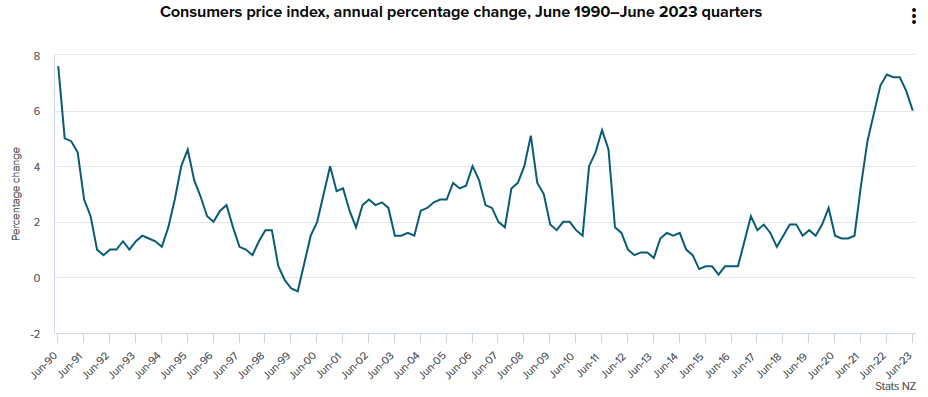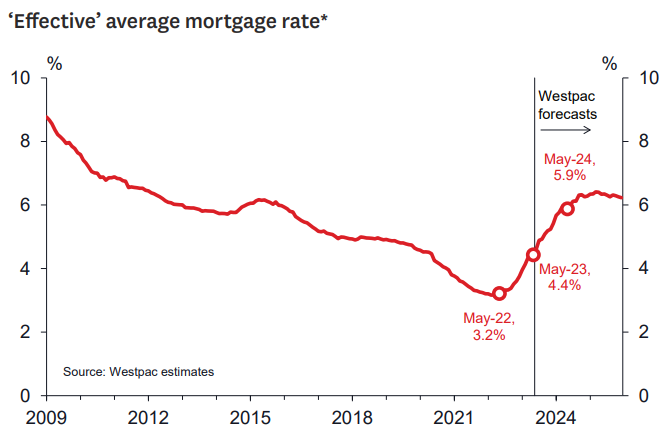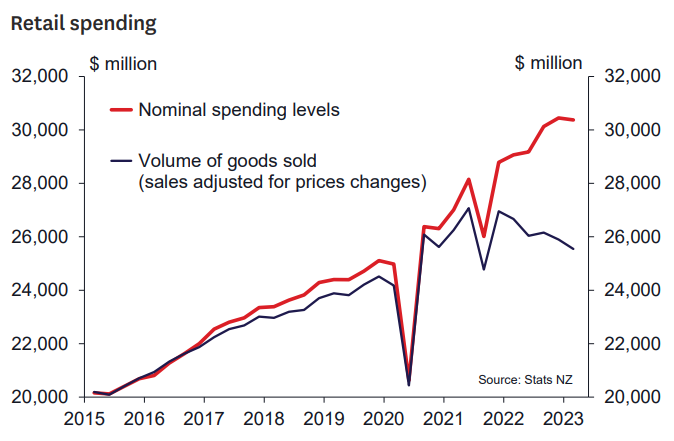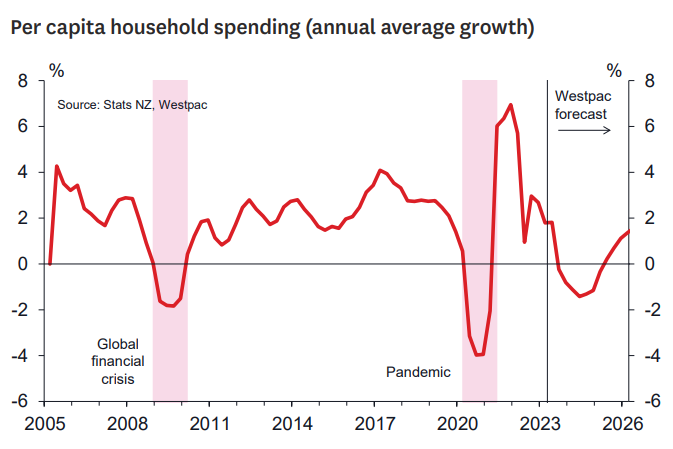Last week, Statistics New Zealand reported 6.0% annual inflation in the year to June:

“Prices are still increasing at rates not seen since the 1990s but are rising at a lower rate than the last few quarters”, Statistics New Zealand’s consumers prices senior manager Nicola Growden said.
Non-tradeable inflation measures final goods and services that do not face foreign competition and is an indicator of domestic demand and supply conditions.
Concerningly, non-tradeable inflation was 6.6% in the 12 months to June 2023, driven by higher prices for construction, rents, and ready-to-eat food.
Interest.co.nz’s David Hargreaves believes that ‘sticky’ domestic inflation places the Reserve Bank in a “quandary” and could potentially cause it to hike again at its monetary policy meeting in August.
When the Reserve Bank hiked the official cash rate (OCR) by 0.25% in May, it indicated that it would remain on hold.
“The [Monetary Policy] Committee is confident that with interest rates remaining at a restrictive level for some time, consumer price inflation will return to within its target range of 1 to 3% per annum, while supporting maximum sustainable employment”, its statement read.
Then it held rate at its monetary policy meeting earlier this month.
For some time, ANZ economists have forecast that the Reserve Bank will be forced to raise the OCR again in November, when it conducts its final review of the year.
Westpac last week also tipped the Reserve Bank to hike another 0.25% next month.
Whether the Reserve Bank does hike will depend upon upcoming data releases.
Either way, I believe further rate hikes would be a mistake.
Westpac recently estimated that ‘effective’ mortgage rates paid by New Zealand households will rise a further 150 basis points into 2024 as fixed rate mortgages expire:

Thus, there is already significant monetary tightening ‘built in’.
Real retail sales volumes are falling:

Westpac also forecasts that per capita household spending will fall by 2% over 2023 and 2024 combined, which will suppress economic activity:

Therefore, the Reserve Bank risks driving the New Zealand economy into an even deeper recession if it continues to tighten.
I expect the Reserve Bank to remain on hold next month.

